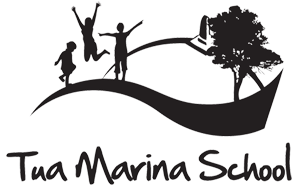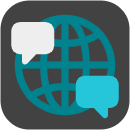In Social Sciences, students explore how societies work and how they themselves can participate and take action as critical, informed, and responsible citizens.
Beliefs
Students need to develop the knowledge, skills and attitudes to understandhow societies work, and to enable them to participate as critical, active, informed, and responsible citizens.
Learning Goals
Through our teaching and learning programmes our students should:
- Develop an understanding of Social Sciences in contexts that are drawn from the past, present, and future and from places within and beyond New Zealand.
- Better understand, participate in, and contribute to the local, national, and global communities in which they live and work.
- Engage critically with societal issues.
- Evaluate the sustainability of alternative social, economic, political, and environmental practices.
- Explore the unique bicultural nature of New Zealand society that derives from the Treaty of Waitangi.
- Learn about people, places, cultures, histories, and the economic world, within and beyond New Zealand.
- Develop understandings about how societies are organised and function and how the ways in which people and communities respond are shaped by different perspectives, values, and viewpoints.
- Explore how others see themselves, students clarify their own identities in relation to their particular heritages and contexts.
- Understand Social Sciences through the following contexts (strands) using PEAK Inquriy Learning Model:
- Identity, Culture & Organisation – students learn about society and communities and how they function. They also learn about the diverse cultures and identities of people within those communities and about the effects of these on the participation of groups and individuals.
- Place and Environment – Students learn about how people perceive, represent, interpret, and interact with places and environments. They come to understand the relationships that exist between people and the environment.
- Continuity and Change – Students learn about past events, experiences, and actions and the changing ways in which these have been interpreted over time. This helps them to understand the past and the present and to imagine possible futures.
- The Economic World – Students learn about the ways in which people participate in economic activities and about the consumption, production, and distribution of goods and services. They develop an understanding of their role in the economy and of how economic decisions affect individuals and communities.
Teaching and Learning Guidelines
Our teaching and learning programmes will:
- Provide meaningful contexts
- Be integrated with Inquiry Learning Units
- Model and teach the social inquiry process
- Reflect the Tua Marina Curriculum Overview
- Link to key competencies, principles and values
- Consider the learning environment – intellectual, emotional, physical, and cultural engagement
- Use a variety of teaching strategies
- Incorporate ICT and Thinking Skills when appropriate
- Make use of staff strengths and community expertise
Planning
- The New Zealand Curriculum will provide the basis for the teaching and learning programmes.
- Refer to PEAK Inquiry Learning Model and MOE resources when planning e.g. TKI, and Digistore
- Planning will follow a coherent pathway from curriculum plans to long term plans to unit or weekly planning to teaching and learning (Refer to ‘1.15 Tua Marina School Planning Guide’, Long Term Plan, Tua Marina Social Sciences Guidelines, and school planning template).
- Assessment data and information about students will be used to determine the teaching and learning programme.
Assessment
Information on student achievement will be gathered and analysed through a range of assessment practices e.g. rubrics, self/peer assessment, observation, NEMP tasks, etc. For guidelines refer to ‘1.13 Tua Marina School Assessment and Reporting Procedure’ and ‘1.13 Assessment-Reporting Overview’.


